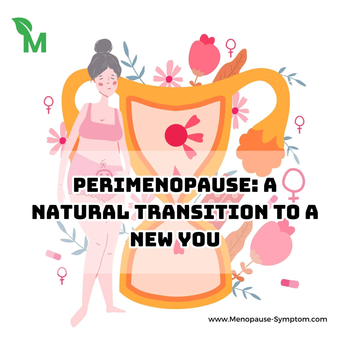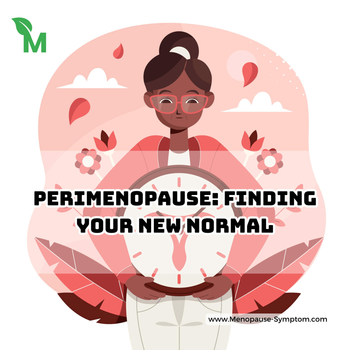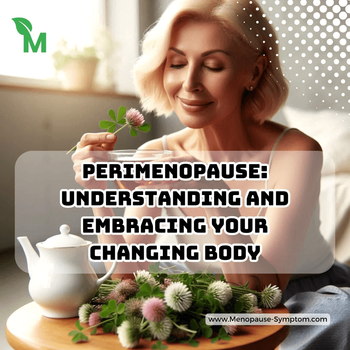Perimenopause is also known as the menopausal transition, at this time the body will no longer have an ovulation cycle, menstruation will disappear and fertility will no longer be possible. This period usually occurs between the ages of 45-50, and can last 2-5 years depending on the person.
This is not only a change in hormones but also a time that marks many changes in the body and psychology. It is important during this period that women need to pay more attention to their health, and one of the most effective ways is to exercise. In this article, we will explore useful exercise tips to help you be healthier during perimenopause.
Why is exercise even more important during perimenopause?
As you enter perimenopause, your estrogen levels drop dramatically. This can lead to a number of unpleasant symptoms, such as hot flashes, mood swings, and weight gain. Exercise not only helps relieve these symptoms, but it also has many positive benefits for your overall health.
One study found that women who exercise regularly during perimenopause can improve their mood, reduce stress, and boost their immune system. Additionally, staying physically active can help maintain bone density, reducing the risk of osteoporosis, a common problem in postmenopausal women.
Types of Exercise to Try
Aerobic (Cardio): Aerobic exercises such as running, dancing, or cycling are great options during perimenopause. These activities not only help control weight, but also improve cardiovascular health and increase your energy. Aim for at least 150-200 minutes of moderate-intensity aerobic exercise each week.
Strength training: During perimenopause, building and maintaining muscle strength is essential. Exercises with light weights, resistance bands, or bodyweight exercises such as push-ups and squats are helpful for building muscle during this period. Strength training also helps increase bone density and prevent osteoporosis.
Yoga and Tai Chi: These are gentle, relaxing exercises that help improve muscle flexibility and endurance and reduce stress – which is essential during perimenopause. In addition, practicing yoga also helps improve your sleep, helping you sleep deeper and more comfortably.
Tips for Maintaining an Exercise Routine
Schedule Your Workouts: One of the most important things to maintain an exercise routine during perimenopause is to have a specific schedule. Identify a time of the week that you will dedicate to exercise and commit to it like an important appointment that you cannot miss.
Take it easy: Start slowly and gently with simple exercises, especially if you have not been active before. Taking it easy will help your body and heart adapt little by little. If you overload your muscles with exercises in the first few sessions, you will damage your muscles more and you will need more time to rest afterwards, which can easily lead to a habit of stopping exercise.
Find a workout partner: Exercising with friends or people who share your interests will be more fun, motivating and help you stay motivated to exercise. Find a group of friends to join in exercise classes or do outdoor activities with.
Listen to your body: During perimenopause, your body will go through many changes and you need to listen to it. If you feel tired, give yourself permission to rest. There is no need to push yourself too hard by doing exercises that are beyond your ability, which can easily lead to unnecessary injuries.
Change your activities regularly: To avoid boredom and stay motivated, experiment with different forms of exercise. Take new classes or do outdoor activities such as hiking, climbing, swimming, or even dancing.
Set small goals: Setting short-term goals will help you feel more excited. It could be completing a yoga course, participating in a local running race, or simply walking 10,000 steps a day.
Improve your diet along with exercise
Exercise is an important but inseparable part of a reasonable diet during perimenopause. Make sure you include foods rich in calcium, vitamin D, omega-3s, and fiber. These foods not only support your workouts but also improve your overall health.
Calcium and vitamin D: Both of these vitamins are essential for bone health. Get them through milk and dairy products, as well as sunlight, which helps your body synthesize vitamin D.
Fiber: Foods rich in fiber, such as whole grains, green vegetables, and fruits, are not only good for digestion but also help with weight control, which is important during perimenopause.
Track Your Progress
Keep a log of your workouts and the changes in your body. Using a journal or tracking app will help you see your progress, which can motivate you to keep going. Many people find that tracking their progress helps them recognize their efforts and evaluate their abilities.
Conclusion
Perimenopause is not a time to let yourself down. Instead, this is a great time to take care of yourself and improve your health. A combination of regular exercise and a healthy diet will help you get through this phase easier and healthier. Think of perimenopause as an opportunity to reinvent yourself, develop healthy habits, and live a life filled with energy. By taking a positive, action-oriented approach, you can conquer this phase and do more exciting things in life.
Source: Team MPS compiled, analyzed and wrote. Please dont reup without source. Many thanks.

Perimenopause: A Natural Transition To A New You
Invalid Date
Perimenopause is an important stage in a woman's life, marking the transition from the reproductive period to a new and meaningful stage. Many people often see perimenopause as something negative, but in fact it is an opportunity to discover yourself again and prepare for self-renewal.

Perimenopause: Finding Your New Normal
09.02.2024
Perimenopause is a natural phase in a woman's life, but it often comes with emotional and physical changes and challenges. For many, perimenopause can cause feelings of anxiety and uncertainty.

Perimenopause: Understanding And Embracing Your Changing Body
Invalid Date
Remember, perimenopause is more than just a transition; it is a celebration of the strength and beauty inherent in every woman’s life.
